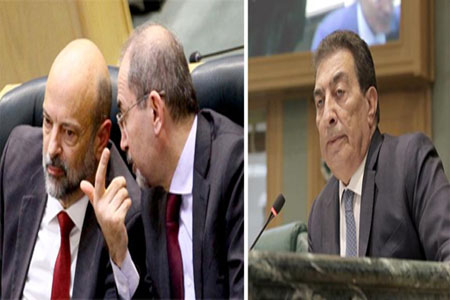
Amman- Afrasianet- Lower House Speaker Atef Tarawneh on Sunday announced that he is inviting heads of Arab parliaments to an urgent meeting next Saturday to discuss the US' recent deal.
The announcement came at the conclusion of a Lower House session headed by Tarawneh and attended by Prime Minister Omar Razzaz held to discuss the deal, the Jordan News Agency, Petra, reported.
Tarawneh stressed that, according to the House’s directives, he would urge the parliaments of Islamic, regional and international countries to pressure their governments to take decisions against the US plan.
He also instructed the House’s secretariat to synthesise MPs’ recommendations in this regard in preparation for sending them to the government.
Tarawneh stressed that Jordan rejects the US peace plan and considers the US biased towards the occupation state.
He noted that any proposal that does not stipulate the establishment of the State of Palestine on the June 4, 1967 borders with Jerusalem as its capital, guaranteeing the rights of return and compensation for refugees, is "unviable".
Jordan’s rejection of the plan is based on the positions of His Majesty King Abdullah, the Custodian of Jerusalem's holy sites, who maintains that resolving the Palestinian-Israeli conflict on the basis of the full and undiminished restoration of Palestinian rights is the key to security and stability in the region.
For his part, Foreign Minister Ayman Safadi said during the session that the Palestinian cause is the subject of a national consensus led by His Majesty, based on unchanging constants, towards achieving a lasting peace that secures the legitimate rights of the Palestinian people and protects national interests.
He affirmed the Jordanian constant which holds that there is no solution without the establishment of an independent Palestinian state within the June 4, 1967 lines, with East Jerusalem as its capital.
The basis for resolution, he added, must be the two-state solution and the fulfilment of Palestinian rights in accordance with international legitimacy resolutions, approved references and the Arab Peace Initiative.
Feb 02,2020

